



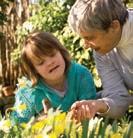



1 Visit www.myfamilyourneeds.co.uk for impartial information about SEND support Peterborough Guide for Parent Carers of Children and Young People with Special Educational Needs and Disabilities (SEND) from birth to 25 years www.myfamilyourneeds.co.uk Published by www.peterborough.gov.uk/localoffer 2023/24
www.myfamilyourneeds.co.uk The lifestyle site for parents and carers of children with additional needs and those who support them. • Birth to adulthood • Real life blogs • Directory • Ask the experts • Monthly columnist Get involved Ask questions Join the family hello@myfamilyourneeds.co.uk • @WeAreMFON
3 Visit www.myfamilyourneeds.co.uk for impartial information about SEND support Introduction 6 Welcome from Peterborough City Council 6 Resources for people supporting disabled children 7 My Family Our Needs 7 Family Voice 7 What do I do if I am worried about my child? 7 Special Educational Needs and Disabilities, Information, Advice and Support Service (SENDIASS) 8 Targeted Support (Early Help) 11 What is an Early Help Assessment and how can I request one? 11 Early Years 12 Help paying for childcare 12 School readiness 13 The Two-Year Integrated Review in Peterborough 13 Family Hubs 13 Barnardo’s Child and Family Centres 14 Early Support 15 Early Childhood Specialists Inclusion 15 Early Identification Officer 16 Early Years SEND Specialists and Portage Service 16 Schools and learning 19 Schools admissions 19 Schools SEN Support 19 Special Educational Needs and Inclusion Service (SENI) 21 Education, Health and Care Needs Assessment (EHCNA) 22 Special Schools 24 SEN home to school transport 24 Home education 25 Independent special schools and colleges 25 Post-16 education 25 Preparing for adulthood 27 Five-day offer 27 Employment 28 Independent living 29 Getting out and about 29 Friends, relationships and community 32 Good health 32 Care Leavers 33 Additional resources 33 Supported Internship stories 34 Contents Alternative formats This guide is available electronically at www.myfamilyourneeds.co.uk/ The e-book is also Recite Me compatible for those requiring information in the spoken word.

5 Visit www.myfamilyourneeds.co.uk for impartial information about SEND support Change of legal status and decision making 38 Appointeeship 38 Lasting Power of Attorney (LPA) 38 Mental Health Act (MHA) 39 Advocacy 39 Health services 41 Health services for everyone 41 Healthy Child Programme 41 Secondary health services 42 Palliative care 44 Continuing care 45 Social care 47 Requesting a social care assessment 47 0-25 Disability Team 47 Disability Social Care Direct Payments 48 Support from Adult Social Care 49 Are you concerned about a child’s safety? 49 Supporting carers 51 Parent Carers 51 Young Carers 51 Money, benefits and financial support 52 DLA for children 52 Personal Independence Payments (PIP) 52 Universal Credit (UC) 53 Disabled Students Allowance (DSA) 53 Support with the cost of living 54 Energy advice service for disabled people 54 Free school meals 54 Holiday Activities and Food (HAF) programme 55 The Family Fund 57 Mobility 57 Support with debt 57 Parent Carer participation 59 Opportunities for participation 59 Compliments and complaints 60 Useful contacts 63 Other directories 65 Has this guide helped you? 66 To obtain extra copies of this guide, free of charge, email the Peterborough Information Network at pin@peterborough.gov.uk Contents continued Alternative formats This guide is available electronically at www.myfamilyourneeds.co.uk/ The e-book is also Recite Me compatible for those requiring information in the spoken word.
Welcome to the first Peterborough Guide for Parent Carers of Children and Young People with Special Educational Needs and Disabilities (SEND) from birth to 25 years. We hope that this publication will give you some helpful information if you have a child or young person with SEND.
From talking to you during our everyday work, we know that although you find the Peterborough SEND Information Hub website informative, you would like to have information in different formats. So, we are really pleased to have produced this printed guide for you.
We have written it in as simple language as we can and have sought the help from our Parent Carer Forum, Family Voice Peterborough, to do this. We have also tried to make the information flow in
a way that it is easy for you to follow, especially if you are new to SEND.
Throughout this guide we will signpost you to further information that can be found on the Peterborough SEND Information Hub website. We will sometimes direct you to other organisations. We will provide you with the URL link to their websites, and when possible, provide you with further contact details for these organisations.

The Peterborough SEND Information Hub is part of the Peterborough Information Network and can be found at www.peterborough. gov.uk/localoffer or by scanning the following QR code.

Welcome from Peterborough City Council
As the Cabinet Member for Children’s Services, I am delighted to bring this brand-new guide to you. There is such a lot of information to absorb as a parent of a child with SEND. I hope that you will find this document as useful as I have!
Councillor Lynne Ayres Cabinet member for Childrens Services, Education, Skills and University.
6 Visit www.peterborough.gov.uk/localoffer for local information about SEND
Introduction
Resources for people supporting disabled children
My Family, Our Needs
My Family, Our Needs is an online resource providing impartial information for parents, carers and practitioners supporting children from birth to 25 years with additional needs. As well as guidance, policy and signposting, there is a lifestyle section for parents covering topics such as health and wellbeing, work, family and relationships.
Family Voice
Family Voice is a local registered charity supporting parents and carers of children and young people from birth to 25 years old with any disability or additional needs. We work together with families and professionals from areas such as education, health and social care, actively seeking to improve services, whilst helping their views and opinions to be heard. We also put Parent Carers and their children and young people at the centre of what we do.
Tel: 01223 207770

Email: hello@myfamilyourneeds.co.uk
Web: www.myfamilyourneeds.co.uk
We are pleased to have worked with Peterborough City Council on this useful signposting guide. We know how difficult it is to navigate through complex systems and this guide, along with the council’s online SEND Information Hub, provides vital information for families.
Tel: 01733 685510
Web: www.familyvoice.org
What do I do if I am worried about my child?
If you are worried about your child, talk to someone you trust such as your doctor, health visitor or teacher at your child's school as soon as possible. They will be able to listen to your concerns and begin the process of identifying how to help you and your child. All children and young people have different personalities, strengths and needs.
They develop at different rates.
The term ‘Targeted Support’ (previously Early Help) is used to describe the process of taking action early to tackle problems and issues emerging for children, young people and their families.
You can find out more on page 11.
7 Visit www.myfamilyourneeds.co.uk for impartial information about SEND support
There are all sorts of reasons why your child might have short-term difficulties. It is not always because of Special Educational Needs (SEN). By talking together, Parent Carers and the school or other educational setting can begin to identify the difficulties so that they can take the right action.
Some children and young people, however, will have SEN. This may need a different approach. It will require educational provision or support that is different or additional to that which is available to their peers.
This support is called SEN support. The school or setting is required to get your permission before they can place your child on SEN support. You can find out more on page 19
A very small number of children will not make enough progress at school even with additional SEN support. In this case the school or the parent may decide to ask the council to carry out an assessment of the child's needs. This may result in a decision to issue an Education, Health and Care Plan (EHCP). You can find out more on page 22
Special Educational Needs and Disabilities, Information, Advice and Support Service (SENDIASS)
The Cambridgeshire and Peterborough SENDIASS provides information, advice and support to parents, children and young people about SEND. The SENDIASS offers:

• Impartial advice and information about SEND.
• Advice and support for parents, children and young people navigating the SEND processes.
• Advice and support for parents and young people to work collaboratively with schools, education, health and children’s services, and other professionals.
• Information and signposting for parents and young people to other available support services and organisations.
• Advice and support for parents and young people in resolving disagreements and support through mediations and tribunals.
Tel: 01733 863979 or 0300 365 1020 (freephone).
Email: SENDIASS@peterborough.gov.uk
8 Visit www.peterborough.gov.uk/localoffer for local information about SEND


Leading provider of specialist care and support for young people and adults across the UK with: Complex needs Learning disabilities Autism Brain injuries Prader-Willi syndrome Transition needs Get in touch 0800 035 3776 www.voyagecare.com G-727-MAY-23


Targeted Support (Early Help)
Targeted Support (previously Early Help) is the support given to children, young people and their families who have needs that are not met by universal services. Universal services are services that are available to everyone, like health and education.
When a family has more needs, Targeted Support ensures they have access to the support they need at the earliest possible stage. This is to stop their needs becoming so great that they need more specialist support later.
What is an Early Help Assessment and how can you request one?
The Early Help Assessment records what is going well, what is not going so well and what is causing you concern. If you need some extra support, you can speak to a professional who can carry out an Early Help Assessment. This might be a teacher at your child’s school or setting or a health professional.
Early Help Assessments are also used to access other forms of support, such as neurodevelopmental assessments (autism or Attention Deficit/ Hyperactivity Disorder), parenting programmes and sleep support.
Peterborough City Council has worked with a wide range of partners to develop a new Early Help Strategy called 'Strong Families, Strong Communities'. For more information on Targeted Support or to view the Early Help Strategy, visit www.peterborough.gov.uk/localoffer (search ‘Targeted Support’).

11 Visit www.myfamilyourneeds.co.uk for impartial information about SEND support www.myfamilyourneeds.co.uk The lifestyle site for parents and carers of children with additional needs and those who support them. • Birth to adulthood • Real life blogs • Directory • Ask the experts • Monthly columnist Get involved Ask questions Join the family hello@myfamilyourneeds.co.uk • @WeAreMFON
Early Years
‘Early Years’ refers to the early education of children from birth to the age of five. This can be delivered by nurseries, childminders or pre-schools. Early education contributes to a child’s independence, learning and social skills.
All Early Year's practitioners (childminders, pre-schools, nurseries and school reception classes) must be registered with Ofsted, who inspect educational and childcare settings for quality and safety standards. The Early Years Foundation Stage (EYFS) Statutory Framework sets standards for the learning, development and care of your child from birth to five years old. More information on the EYFS Statutory
Help paying for childcare
• Tax-free childcare – parents can get up to £2,000 a year per child to help with the cost of childcare. This goes up to £4,000 a year if a child has a disability. Visit www.childcarechoices.gov.uk
• Free childcare for two year olds – 15 hours per week over 38 weeks of the year (term time) or 11 hours for each week of the year. Parents must be in receipt of certain benefits to be eligible for this funding. Visit www. peterborough.gov.uk/FreeforTwos
• Funded childcare for three and four year olds – All children aged three and four years of age can receive up to 570 hours of funded early education and childcare per year, either in 15 hours per week term time or 11 hours
Framework can be found at www.gov.uk/ early-years-foundation-stage
All registered practitioners will have an identified Special Educational Needs Co-ordinator (SENCO). If a case is considered complex (medical or educational) then the Early Years providers may complete an Early Help Assessment with parents. A referral can then be made to Early Support. More information on Early Support can be found on page 15.
For more information visit the SEND Information Hub at www.peterborough.gov.uk/localoffer (select ‘Early Years and Childcare’).
per week all year round. Visit www.peterborough.gov.uk/residents/ nurseries-and-childcare
• Extended entitlement for working families – Three and four year olds of working parents may also be entitled to an additional 570 hours per year on top of the universal entitlement, meaning these families will be able to claim up to 1,140 hours of funded early education per year, equalling up to 30 hours per week term time, or 22 hours per week all year round. Visit www.gov. uk/apply-30-hours-free-childcare
For more information, visit www.peterborough.gov.uk/residents/ nurseries-and-childcare
12 Visit www.peterborough.gov.uk/localoffer for local information about SEND
School readiness
Helping your child to prepare for school will build their confidence so that they start school confident, curious and ready to learn. Using positive encouragement can enable your child to feel good about themselves.
S – shoes, socks and put on clothes.
T – talking, sharing and following instructions.
A – asking for help.
R – ready to try different foods and use different tools.
T – toilet on their own.
START is an easy guide to help you get your child ready for school, ready to learn and ready to succeed. START means:
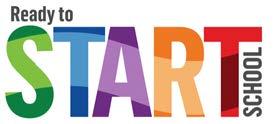
More information on School Readiness is available at www.peterborough.gov. uk/residents/schools-and-education/ school-readiness
The Two-Year Integrated Review in Peterborough
The EYFS Statutory Framework requires that Early Years settings review a child’s learning and development by completing a progress check when a child is between 24 and 36 months old. The ‘Healthy Child Programme’ requires health professionals to complete a health review between the ages of two and two and a half years old.
In Peterborough, information from each
Family Hubs
Family Hubs is a national programme to help ensure that babies, children and families have the support they need, when it is needed. Peterborough City Council has received extra funding from the Government to develop Family Hubs.
The Family Hubs offer will provide high-quality support for families with
assessment is shared between parents, health visitors and Early Years settings. Or, for children where more support is needed, a joint meeting is held where information will be shared, and the next steps will be decided for further support.
More information on the Healthy Child Programme is available on page 41 or visit www.cambscommunityservices.nhs.uk
children from birth to the age of 19 (or up to 25 for young people with Special Educational Needs). The council will use this funding to develop:
• Parent support, particularly for parents of children from birth to two years old.
• Help and ideas to support your child’s learning and development.
13 Visit www.myfamilyourneeds.co.uk for impartial information about SEND support
• How to support your child to become happy, independent and resilient adults.
• Support for parent's emotional wellbeing in the first years of parenthood.
• Help with infant feeding.
Barnardo’s Child and Family Centres

In Peterborough Child and Family Centres are run by Barnardo’s and offer a variety of activities for children from birth to five years old and their parents/ carers. The core purpose is to ensure that all children have the best start in life and achieve positive outcomes.
Each centre will offer a different mix of activities; however, across Peterborough there are things for parents and children from birth to five years old as well as expectant mothers. Barnardo’s Child and Family Centres offer a range of drop-in sessions, including:
• Baby Time.
• Rhyme Time.
• Sing and Sign.
• Song, Rhyme and Story Time.
• Stay and Play.
The centres also offer other groups and courses that require online booking. These include:
• Baby massage.
• Driving Healthy Lifestyles.
• Parent and carer panels and engagement with families.
• Provision of more information, support and advice online.
Visit www.peterborough.gov.uk and search ‘Family Hubs’.
• Every Child A Talker (ECAT) – Chatter Matters, Sign and Sing and Tots Talking.
• Mighty Milestones.
• Peer Early Education Partnership (PEEP) – Antenatal, Birth to Walking and Toddler to Five.
• Sensory Learners and SEN Support Group.
• Starting Solids.
All sessions and courses run by Barnardo’s are free, except for Baby Massage. For more information, including a list of local centres and to book a place in a session, visit https://bookwhen.com/barnardo-scfcp-borough-cambridgeshire or use the following contact details.
Tel: 01733 894028
Email: peterboroughadminteam@ barnardos.org.uk
14 Visit www.peterborough.gov.uk/localoffer for local information about SEND
Early Support
The Early Support Pathway in Peterborough provides a co-ordinated care approach to children from birth to five years old with complex health, education or care needs. These children will require considerable ongoing support from across education, health and care.
This includes children who have:
• Great difficulty with communication.
• Sensory or physical difficulties.
• Complex health needs.
With parental consent, a professional can refer a child to Early Support after completing an Early Help Assessment. For more information on Early Help Assessments, see page 11
Early Childhood Specialists Inclusion
Early Childhood Specialists offer support, advice and training to Early Years practitioners in Peterborough to develop their knowledge and expertise in early identification and intervention for children with SEND.

A practitioner who might require support to meet the needs of a child in their Early Years setting can request support from the Early Childhood Specialists, provided they have
consent from the parents. The team also offers support to reception class staff where they are not experienced in supporting children at a significantly lower stage of development.
More information on the support offered by the Early Childhood Specialists can be found at www.cambslearntogether.co.uk (search ‘Peterborough Early Years and Childcare – SEND’).
Visit www.myfamilyourneeds.co.uk
Early Identification Officer
Early Identification Officers provide advice and support to families who have a young child with complex needs. They offer support to parents in a variety of ways, including working with other partners, developmental support or assistance with form filling.

The service can support parents in identifying and visiting childcare
settings, arrange any specialist training that may be required to assist them in meeting the child’s needs, assist parents with school placement applications and support with the process of applying for an EHCP where needed.
Find out more by visiting www.peterborough.gov.uk/localoffer (search ‘Early Years and Childcare’).
Early Years SEND Specialist and Portage Service
The Early Years SEND Specialist and Portage Service is an education service that supports families with pre-school children with additional needs and/ or disabilities. The service works with families in developing ways to play, learn and engage with their local community. Its offer may include:
• Regular home visiting to the child and their family using a model of support.
• Training for parents, including the National Autistic Society's Early Bird programme.
• Training for settings and other services supporting children with complex needs in their Early Years.
• Referral to parent/carer groups that use the service’s 'model' of supporting early development.
• SEND Specialist work to support children from birth to five years old who are not attending a pre-school educational setting.
• Supporting families with their child’s transition to pre-school.
Information on how professionals can request the service for a family or child can be found on the ‘Early Years and Childcare’ page at www.peterborough.gov.uk/localoffer or use the following contact details.
SEN and Inclusion Team
Tel: 01733 863702
Email: SEN.inclusion@ peterborough.gov.uk
16 Visit www.peterborough.gov.uk/localoffer for local information about SEND
Sense College is an independent specialist college preparing young people with complex disabilities and/or sensory impairments for adulthood.

Operating in the East of England, East Midlands, West Midlands and Greater London, Sense College supports learners, aged 16 to 25, in their local communities to develop independent living skills and communication.

Sense College offers bespoke training and support to help learners meet their educational and employment goals, and promotes social inclusion through its arts, sport and wellbeing sessions.
To find out more about Sense College, please visit Sense.org.uk/college or email college.enquiries@sense.org.uk

Schools and learning
Every child deserves the same opportunity to meet their potential. For children with special educational needs and disabilities this means
School admissions
The School Admissions Team offers guidance and support to parents, carers and children looking for primary and secondary school placements in
Schools SEN support
Every child with SEN should have SEN support. This means help that is different from or additional to the support given to other children of the same age. The purpose of SEN support is to help children achieve the outcomes or learning objectives set for them by the school. Schools should involve parents in this process.
Every school must publish a SEN information report about the SEN provision the school makes on their own website. You can also ask your child’s teacher or the school’s SENCO for information on the SEN provision made by the school.
making sure they have the opportunity to develop skills, make friends and gain independence during the time they spend in education.
Peterborough. Schools available in Peterborough can be found at www.peterborough.gov.uk/residents/ schools-and-education
If you think your child may need SEN support, you should talk to your child’s teacher or to the SENCO.
More information can be found on the ‘Education’ page of the SEND Information Hub
(www.peterborough.gov.uk/localoffer). If you are not happy about the support your child has you can ask to talk to the SENCO or Headteacher.
You can also find out more by contacting the SENDIASS. More information is available on page 8, on the SEND Information Hub’s ‘Advice and Support Service’ page
The school should decide if your child needs SEN support. The school should talk to you and your child about this. If a young person is 16 or older the school should involve them directly.
(www.peterborough.gov.uk/localoffer) or by using the following contact details.
Tel: 01733 863979
Email:
SENDIASS@peterborough.gov.uk
19 Visit www.myfamilyourneeds.co.uk for impartial information about SEND support





School and College provides education, nursing, personal care, therapy, support and guidance so that disabled people aged 4 – 25 years can achieve and work towards a future that is as independent as possible.
is a deep-rooted ethos of treating children with dignity and respect. This extends to all aspects of their care, including assistance with daily living and help to express how they are feeling. The staff team’s deep understanding of the importance of sensitive, individualised support for the children is impressive.” Ofsted 2023 Treloar’s, Powell Drive, Holybourne, Alton, Hampshire GU34 4GL T: 01420 547747 E: admissions@treloar.org.uk W: treloar.org.uk A company limited by guarantee. Registered in England No. 04466362 Charity No. 1092857 Contact us to book a tour
Treloar
“There
When your child is identified with SEN, the school should use a graduated approach based on the following four steps.
Assess
Teaching staff should work with the SENCO to assess your child’s needs, so that they provide the right support. They should involve you in this and, where possible, seek your child’s views. Sometimes schools will seek advice from a specialist teacher or a health professional. They should talk to you about this first.
Plan
If the school decides that your child needs SEN support, it must tell you. The school should talk with you about the outcomes that will be set, what help will be provided and agree a date for progress to be reviewed.
Do Your child’s class or subject teacher is
usually responsible for the work that is done with your child and should work closely with any teaching assistants or specialist staff involved. The school should tell you who is responsible for the support your child receives. All those who work with your child should be made aware of their needs and support agreed.
Review
The school should review your child’s progress, and the difference that the help your child has been given has made, on the date agreed in the plan. You and your child should be involved in the review and in planning the next step.
If your child has not made reasonable progress, it will be important to agree with the school what should happen next. You and the school can look at the SEND Information Hub (Local Offer) to see what support is available that could help achieve your child’s outcomes. Visit www.peterborough.gov.uk/localoffer
Special Educational Needs and Inclusion Service (SENI)
The SENI Service at Peterborough City Council includes the following teams.
The autism/ADHD Advisory Teacher Service
This service supports education settings with children and young people who have a diagnosis of autism and/ or Attention Deficit Hyperactivity Disorder (ADHD). The service offers training, individualised support and parent/carer consultations.
Sensory and Physical Support Service (SAPS)
This service provides advice, support and training for schools and education settings about the needs of children and young people who have a clinical diagnosis of deafness, vision impairment or a physical disability.
SAPS works with children and young people from birth to the age of 25 at home, in Early Years settings, schools and in further education colleges.
21 Visit www.myfamilyourneeds.co.uk for impartial information about SEND support
It also supports families from diagnosis and provides support, particularly at key times such as transition to a new school or college.
For more information, visit the SEND Information Hub at www.peterborough.gov.uk/localoffer (search ‘SAPS’).
The Educational Psychology Service
This service is for children and young people from birth to the age of 25. All Educational Psychologists (EPs) employed are registered with the Health Care Professions Council and have specialist training and qualifications in Child Development, Psychology and Education. You can see more on the SEND Information Hub. Visit www.peterborough.gov.uk/localoffer (search ‘Educational Psychology Service’).
The Early Years SEND Specialist and Portage Service
More information can be found on page 16.
The Local Area SENI Support Service
This team supports the strategic development of SEND across Peterborough and supports children and young people with an EHCP at transition points. For example, primary to secondary school.
The Statutory Assessment and Monitoring Service (SAMS)
This team undertakes the statutory work associated with the council’s responsibilities in relation to EHCPs.
More information on the SENI Service in Peterborough can be found on the SEND Information Hub. Visit www.peterborough.gov.uk/localoffer (select ‘Education’).
Education, Health and Care Needs Assessment (EHCNA)
If your child is not making sufficient progress despite assessment and provision in place within the school or nursery, the council will need to consider what further provision may be appropriate. An EHCNA may need to be carried out.
An EHCNA can be requested by parents, carers, teachers or any other professional involved with a child or
young person. It can also be requested by a young person over the age of 16.
During an assessment, information will be collected from the parents, the child’s school or setting, social care and the child or young person themselves. If an EP, or other relevant health professionals are involved they may be able to provide information for the assessment.
22 Visit www.peterborough.gov.uk/localoffer for local information about SEND
Following the assessment, a decision will be made as to whether an EHCP is required. If it is, a draft EHCP will be created, detailing the child’s needs and describing how these will be met. The timescale for the entire process is 20 weeks.
There is a process timeline flow chart, guidance on how to complete an EHCNA and additional information on the SEND Information Hub. Visit www.peterborough.gov.uk/localoffer (search ‘Assessment and Education, Health and Care Plans’).
Here, you can apply for an EHCNA using an online form. Alternatively, you can request a paper copy by contacting the SAMS using the following contact details. Lastly, parents can write a letter or email requesting a needs assessment.
Tel: 01733 863996 or 01733 863934
Email: SENTeam@peterborough.gov.uk
Resolving disagreements about an EHCP
If you disagree with a decision made by the council in relation to an EHCNA or EHCP, there is a statutory process which can be initiated and followed to resolve the disagreement. You can find out more on the Peterborough SEND Information Hub. Visit www.peterborough.gov.uk/localoffer (search ‘Resolving disagreements
about an EHCP’). Sometimes it isn’t possible to reach a resolution without the help of a third party. There are different types of formal dispute resolution. These are:
• Mediation: An informal, confidential and voluntary process which involves an independent facilitator (the mediator) helping those in dispute to reach agreements. It is free of charge for families. Requests must be received within two months of receiving the decision letter from Peterborough City Council. The third-party mediation service provider for Peterborough is Kids. Visit www.kids.org.uk/send-mediation
• Disagreement Resolution: There are certain decisions made by the council which cannot be challenged via the mediation process. In these circumstances parents can request a Disagreement Resolution meeting. For more information, visit www.kids.org.uk/what-isdisagreement-resolution
• First-Tier Tribunal (SEND Tribunal): This process handles appeals against council decisions regarding SEN. More information is available on www.gov.uk (search ‘First-Tier Tribunal SEND’).
The SENDIASS can offer information, advice and support in resolving disagreements about EHCPs. See page 8 for more information and contact details.
23 Visit www.myfamilyourneeds.co.uk for impartial information about SEND support
Special schools
Peterborough special schools provide appropriate placements for children and young people with the most significant needs. The council is responsible for the decision to place a child or young person in a special school. A multi-agency panel considers individual children or young people with an EHCP where a special school placement is requested and advises the council.
Children and young people who are successful in a specialist setting may return to a mainstream setting
SEN home to school transport

Travel assistance is not automatically granted because a child has an EHCP, and many children with SEND travel to school without special provision. However, some children with specific needs will require additional support, often for an agreed period. In such cases the council will arrange transport to meet the specific needs of the students. This might include public transport, taxi, minibus, wheelchair accessible vehicle and a bus/coach.
at any time, following appropriate review of their SEN/EHCP. However, it is especially important to consider mainstream options at times of transition, e.g., transfer between primary and secondary school.
Detailed guidance for making the decision about whether a child or young person would be appropriately placed in a particular special school is available to download. This document can be found on the ‘Education’ page on the SEND Information Hub. Visit
www.peterborough.gov.uk/localoffer
Operating throughout the UK. Do you need help to communicate? Then perhaps The Sequal Trust can help……
Sequal aims to provide speech aids to those people who cannot afford to purchase such very vital equipment, to allow them to lead more independent lives and especially when statutory bodies are unable to help.
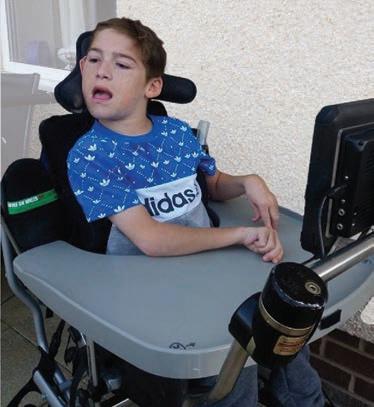
For more information or to apply for school transport in Peterborough, visit www.peterborough.gov.uk (search ‘School transport’).
www.thesequaltrust.org.uk

01691 624222
info@thesequaltrust.org.uk

24 Visit www.peterborough.gov.uk/localoffer for local information about SEND
Home education
Although most children are educated in a school, some people choose alternative education for their children. This is usually by opting to educate your children in the family home. This type of education must still be efficient and suitable for your child.
If your child has SEN, you have an equal right to home educate. However, if your child currently attends a special school their name cannot be removed from the roll of that school without the
agreement of the council. If a child who is home educated has an EHCP, the council remains responsible for ensuring that the child’s needs are met and is under a duty to review it annually.
If you are educating your child at home and feel they have SEN, you may ask the council to carry out a statutory assessment (or reassessment) for an EHCP. You can also find out more by visiting www.peterborough.gov.uk (search ‘Home education’).
Independent special schools and colleges
The Government produces lists of approved independent educational institutions, independent special schools, post-16 institutions (Section 41 Secretary Approved List),
Post-16 education
The law requires that every young adult in England continues in education or training until their 18th birthday. This education can be provided through sixth form, college or with a training provider.
The young person can complete an Apprenticeship or Supported Internship. Alternatively, full-time work or volunteering can be combined with part-time education or training that leads to a relevant qualification.
Every young adult between 16 and 17 years old is entitled to an offer of a suitable place of learning by the end of
non-maintained special schools and independent schools. These can be found at www.gov.uk (search ‘Independent special schools and colleges’).
September, to continue in education or training the following year. Young people with an EHCP must have the same access to further education until they are 25 years old. Courses at college will be free, provided they are making progress.
More information on further and higher education in Peterborough can be found on the SEND information Hub. Visit www. peterborough.gov.uk/localoffer (search ‘Are you hoping to go to college’). You can also find out more in the next section of this guide, and on the SEND Information Hub (select ‘Preparing for Adulthood’).
25 Visit www.myfamilyourneeds.co.uk for impartial information about SEND support

Preparing for adulthood
Your child growing into a young adult can be a very worrying time for parents and carers. Your child will be moving from familiar children’s services to new adult services. They will take on decisionmaking responsibility for themselves.
Preparing for adulthood involves work being carried out by professionals, alongside families. The professionals are from education, health and social care. It supports children and young people to achieve their goals and aspirations.
For young people with SEND, planning for adulthood happens throughout their childhood. If a young person or
Five-day offer
This is a supportive framework which focuses on young people aged between 16 and 25 years old with a learning disability who are leaving full-time education. It helps them to develop links around learning, independent living skills, volunteering, paid work and leisure in their local community.

The five days do not have to be at one provider and can include time in different settings and with different providers.
It can include a range of activities to complement the education outlined in an EHCP. More information on the five-day offer can be found on the Peterborough
your child has an EHCP, preparing for adulthood will form part of this plan during Year 9 (the year in which they have their 14th birthday).
More information is available on the SEND Information Hub. Visit www.peterborough.gov.uk/localoffer (select ‘Preparing for Adulthood’). Alternatively, you can contact the Preparing for Adulthood Helpline, available on the first Wednesday of each month from 1.00pm to 3.00pm.
Tel: 07920 160256
Email: elizabeth.sullivan@ peterborough.gov.uk
SEND Information Hub. Visit www.peterborough.gov.uk/localoffer (select ‘Preparing for Adulthood’).
27 Visit www.myfamilyourneeds.co.uk for impartial information about SEND support
Employment
Employment is an important part of life. There are several ways that young people with SEND can access the world of work, including:
• Supported Internships.
• Apprenticeships.
• Traineeships.
• Volunteering. City College Peterborough Day Opportunities Service provides a range of supported employment services and enterprises run in partnership with adults with disabilities. The Employment Team provides support to gain sustainable work and volunteer placements through its team of experienced advisers, job coaches and support staff. Visit www.ccpdayopportunities.co.uk
First Steps to Success
Cambridgeshire and Greater Peterborough offers support to people who have learning disabilities and/or autism to become work ready, enter paid employment, gain work placements and work experience or find volunteering opportunities. Visit www.papworthtrust.org.uk/work/ first-steps-to-success-cambridge
Futures for You offers an Independent Advice and Support Service (IASS) for young people with SEND looking for opportunities and access to employment and training. Visit www. futuresforyou.com/young-people
More information for young people looking for support with employment can be found on the SEND Information Hub at www.peterborough.gov.uk/localoffer (search ‘Preparing for employment’).

28 Visit www.peterborough.gov.uk/localoffer for local information about SEND
Independent living
Independent living is about young people having choice, control and freedom over their lives. This includes where they live, managing money and support they might need and developing independence skills.
Finding somewhere to live
A young person may continue living with family until it’s the right time to move. They can still become more independent whilst living with family. Young people in care can find out more information about living independently on the Peterborough City Council website at www.peterborough.gov.uk (search ‘Care Leavers Local Offer’) or see page 33.
It is important to consider how a property can support a young person’s needs. It isn’t always possible to find a home that suits exactly, but there may be small things that can be changed to make it work.
If big changes are needed for a property, a Disabled Facilities Grant may be available. This is managed by Care and Repair, the local Home Improvement Agency. To find out more, search ‘Care and Repair’ on the Peterborough Information Network at www.peterborough.gov.uk/pin
Getting out and about
Everyone wants to have fun, enjoy hobbies and follow interests. The SEND Information Hub contains useful information on how to get out and about. It includes activities and day opportunities in Peterborough,
Technology Enabled Care is equipment and technology to help people live independently. This can include reminders and other apps on a phone, alarms and home safety features, and smart technology such as smart doorbells and virtual assistants.
Smart Flat Peterborough is set up with assistive technology and open for the public to visit and see how the equipment works. The flat is located at Kingfisher Court in Stanground. To book a time slot call or email Peterborough City Council. For a list of questions to consider when purchasing assistive technology, see page 30.
Tel: 01733 747474 (select ‘Adult Social Care’).
Email: adultsocialcare@ peterborough.gov.uk
Supported Living describes a range of services that enable people with additional needs to live as independently as possible in their local community. Supported Living providers can be searched for on the Peterborough Information Network at
www.peterborough.gov.uk/pin
information on travel, public transport, learning to drive and how to apply for the Blue Badge parking scheme. For more information, visit www.peterborough.gov.uk/localoffer (search ‘Getting out and about’).
29 Visit www.myfamilyourneeds.co.uk for impartial information about SEND support
Assistive technology checklist
It’s a good idea to consider the following questions before buying any assistive technology. If you are unsure about what technology might help meet your needs, you can contact your council.
You can download and print this checklist at www.carechoices.co.uk/checklists
Suitability
Does the equipment support your specific needs?
Are you willing to use it?
Will it fit into your everyday life and routine?
Have you tried a demo of the equipment?
Do you understand what the equipment is for?
Do you need to take it with you when you leave the house? Is it transportable?
Does the equipment have any limitations that would make it unsuitable for you?
Will it work alongside any assistive technology you already have?
Usability
Is a simpler piece of equipment available (e.g. a pill case rather than an automated pill dispenser)?
Does the equipment need a plug socket and will any wires cause a trip hazard?
Is it easy to use? Can you read/hear it clearly and are any buttons big enough for you?
Are you able to use it? Are there any aspects you don’t understand?
Will it need to be installed by a professional?
Can the retailer provide you with training in using the equipment?
Reliability
Will it work if you have pets or live with other people (e.g. could someone else set off a sensor alarm by accident)?
Have you read reviews of the equipment you are looking at? Consider these before making your purchase.
Can you speak to someone who already uses it?
Does it require batteries? Find out how often they will need changing and whether the equipment will remind you to do this. Is it durable? If you drop it, is it likely to break?
Cost
Do you know how much it costs?
Will you need to pay a monthly charge?
Are there alternative solutions that might be free?
Is there a cost associated with servicing the equipment?
© 2023 Care Choices Ltd
30 Visit www.peterborough.gov.uk/localoffer for local information about SEND
THE LEADING PUBLISHER OF CARE SERVICES DIRECTORIES
Care Choices is delighted to publish the annual
Peterborough Guide to Independent Living
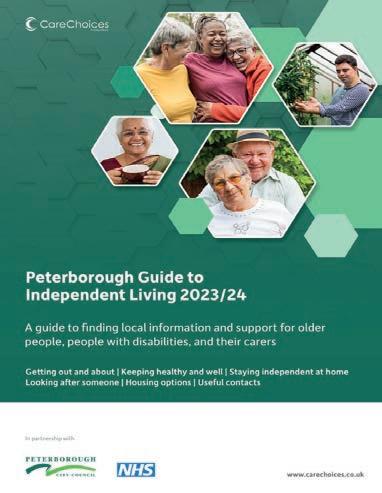
• Useful information about staying independent, safe and well in Peterborough.
• Guidance on everything from social care assessments and financial support to making adaptations and keeping healthy.
• Includes listings of all care homes, nursing homes and home care providers in the wider area.
• Online edition available at www.carechoices.co.uk
In partnership with

www.carechoices.co.uk Search for care in your area
Friends, relationships and community
It is important to support, develop and maintain friendships and relationships so that young people can access their community and feel safe and confident. The SEND Information Hub offers a directory of activities, community groups, clubs and sports groups. If you see the SEND Information flag listed, the activity is accessible for people with SEND. Search ‘What’s on’ at www.peterborough.gov.uk/localoffer
Access Champions is a group of young adults who are passionate about improving access for the disabled community in and around Peterborough. Email AChampion@ citycollegepeterborough.ac.uk or visit www.accesschampions.weebly.com
How Are You Peterborough has a directory of activities. You can search for activities near you by entering your postcode or find activities based on categories. Visit https:// haypeterborough.co.uk/activities
Good health
It is important for young people to be aware of their health needs and how to look after themselves as they grow up and become more independent. There is a range of health services available for everybody – including young people with SEND. These include GPs, hospitals, dentists, pharmacists and opticians. In some cases, young people may need to
Safe Soulmates is an organisation working to end loneliness for adults with additional needs.
This is by facilitating a fun social life where friendships and relationships can develop in a safe way. Email info@safesoulmate.org.uk or visit https://safesoulmates.org
Youth Inspired provides information on activities, groups and clubs for young people in Peterborough.
The directory is available as a PDF as follows. Visit www.pcvs.co.uk/wpcontent/uploads/2021/07/YouthInspired-Brochure-V4.pdf
For more information on friendships and relationships opportunities in Peterborough, visit the SEND Information Hub at www.peterborough. gov.uk/localoffer (search ‘Friends, relationships and community’).
access specialist services which may be different depending on need.
The Learning Disabilities Annual Health Check is a free, yearly appointment with a GP or Practice Nurse. In this appointment the doctor or nurse will ask questions about keeping well and find out whether any extra help is needed.
32 Visit www.peterborough.gov.uk/localoffer for local information about SEND
With consent they will also check physical health such as weight, heart rate and blood pressure. They may ask for a urine sample or a blood test and will also look at any medication to make sure that this is still right.
The Annual Health Check is a good time to ask the GP or nurse any questions or worries that you may have about your health. It is available to anyone aged 14 or over who has a learning disability. It is voluntary, and you can choose whether to have one. For more information, visit www.nhs.uk/conditions/learningdisabilities/annual-health-checks
Care Leavers
Leaving care can be a scary time for young people, but more so if they have SEND. The Peterborough City Council website provides a Care Leavers Local Offer, with information and support for young people aged 16 to 25 who are leaving care.
Additional resources
The National Development Team for Inclusion offers a range of tools and resources to prepare young people for adulthood. Visit www.ndti.org.uk/resources/preparingfor-adulthood-all-tools-resources
A Learning Disability Nurse or Advisor is someone you can ask for help or advice if you have to attend or be admitted to hospital. They understand the needs of people who have learning disabilities and/or autism and have knowledge of how the hospital works. They can also work with you or your child and the hospital staff to facilitate the care, treatment and tests needed.
More information on Learning Disability Nurses, the LDAHC and other health services for young people is available on the SEND Information Hub. Visit www.peterborough.gov.uk/localoffer (search ‘Good health’).
It includes information on employment, education, accommodation, health and wellbeing, finances and community participation. For more information, visit www.peterborough.gov.uk (search ‘Care Leavers Local Offer’).
Life – A Guide for Young People’ in easy read format. Visit www.peterborough.gov.uk/localoffer (select ‘Preparing for Adulthood’).
The SEND Information Hub has a dedicated section, ‘Preparing for Adulthood’, which includes the documents, ‘Preparing for Adulthood – A Parent's Guide’ and ‘Preparing for Adult
My Family, Our Needs, publisher of this guide, has created a ‘Transition checklist’, to help young people make the most of their transition to adulthood. To view the checklist online and download a copy, visit www.myfamilyourneeds.co.uk/ support-child/transition-checklist
33 Visit www.myfamilyourneeds.co.uk for impartial information about SEND support
Nikita’s story
Nikita started her Supported Internship in September 2022. At first, she was nervous about pursuing a work placement due to the change and unfamiliarity of a workplace environment. However, after completing her vocational profile and chatting with her tutors, it was agreed that Nikita would begin a work placement with the Ventures Lounge staff who prepare food in the college kitchens.
Nikita was supported by a Job Coach at the start of her work placement and after demonstrating confidence and comfort in her new environment, her Job Coach reduced support within the kitchen and increased her hours from four to eight per week. Nikita has been supported with breaking down instructions given to her by her colleagues and explaining the different sounds and smells within the kitchen to allow her to process her surroundings.
Nikita has enjoyed getting to know the kitchen staff and has formed a good rapport with her colleagues, particularly her kitchen mentor. Nikita has stated that working in the college kitchens has given her a different perspective towards working in hospitality and that the environment is not as overwhelming as she initially perceived.
Supported Internship stories
“ 34 Visit www.peterborough.gov.uk/localoffer for local information about SEND
Logan's story
Logan started his Supported Internship in September 2022. After completing his vocational profile and having a chat with his tutor, Logan decided he wanted to pursue a practical work placement. Job Coaches contacted Sacrewell Farm who were eager for Logan to join their team with maintaining the farm grounds.
Logan’s confidence has increased significantly working at Sacrewell Farm and his mentor has been particularly impressed with Logan’s confidence when interacting with colleagues unsupported. Logan has now increased his hours from three to five and a half per week, with the potential to increase his days at the farm in the future.
Frankie's story
Frankie started his Supported Internship for the 2022/23 academic year as an external student and new to the college.
Frankie completed his vocational profile and was open to trying a job role which would be repetitive and give him a sense of purpose.
Serpentine Green offered Frankie a taster day with the on-site cleaning team. Frankie was introduced to several members of the team and was given a work buddy throughout his shift. After
Frankie’s taster day it was decided he would work twice a week from 10.00am to 2.00pm.
Frankie was initially supported in the workplace by a Job Coach.
Frankie needed to be prompted to complete a task, and tended to be scared to ask questions if he was unsure on what to do. Job Coaches worked with Frankie until he was aware of a few different tasks he could do in Serpentine Green and built up his confidence around the workplace and fellow employees.
”
35 Visit www.myfamilyourneeds.co.uk for impartial information about SEND support
Luke's story
The first year of Luke’s Supported Internship was disrupted due to COVID-19, which resulted in work placements being postponed until it was safe to return. Meanwhile, Luke worked hard in college, completing his Level One Employability Qualification and continuing to work on his Maths and English.
Luke returned to his Supported Internship for the 2021/22 academic year and started his placement at a car wrapping company called Matt’s Wraps in June. Luke swiftly followed this up by gaining a second placement at JD Graphics and worked throughout the summer holidays. Luke was supported in the workplace by a Job Coach.
Luke could already drive and was independently able to get himself to and from both work placements. During Employability lessons Luke developed skills such as job hunting, interview practice, writing application forms, writing CVs and cover letters. Luke was able to use the experience and knowledge gained from the classroom and implement this into the workplace.
Job Coaches worked on setting Luke different targets to reach throughout the summer, whilst receiving positive feedback from employers each month. In September, Luke was offered a full-time position working 40 hours per week. He will continue to work with Matt’s Wraps and his contractors over the Cambridgeshire area.
36 Visit www.peterborough.gov.uk/localoffer for local information about SEND “
Meighan's story
Meighan started her Supported Internship for the 2019/20 academic year. Meighan’s first year consisted of completing her Level One Employability Qualification and continuing to work on her Maths and English. Alongside this, Meighan started a placement as a Catering Assistant at Baxter Storey (Anglian Water).
Before Meighan’s initial work placement, she was travel trained by a Job Coach. Meighan and the Job Coach learnt the routes to and from the workplace, what time the bus would arrive, how to get to the workplace once she got off the bus and how to get home. Meighan is now an independent traveller and regularly uses the bus to get to work.
After a month at Baxter Storey, Meighan progressed her role and ventured out onto the shop floor. She restocked the shelves, served customers food and cleaned/tidied the tables and plates away. Unfortunately, Meighan’s placement had to stop in March 2020 due to COVID-19 and she was unable to go back. In May 2021, Meighan began her second work placement after returning to her Supported Internship. Meighan started working at The Chalkboard as a Catering Assistant.
Job coaches worked on setting Meighan different targets to reach throughout the summer, whilst receiving positive and constructive feedback from employers each month. In October, Meighan was offered paid employment by The Chalkboard. She will continue to work with The Chalkboard and develop her catering skills and abilities.
37 Visit www.myfamilyourneeds.co.uk for impartial information about SEND support ”
Change of legal status and decision making
The Mental Capacity Act (MCA) is designed to protect and empower people who may lack the mental capacity to make their own decisions about their care and treatment. It applies to people aged 16 and over.

It covers decisions about day-to-day things like what to wear or what to buy for the weekly shop, or serious life-changing decisions like whether to move into a care home or have major surgery. Examples of people who may lack capacity include those with:
Appointeeship
If someone who is over 16 lacks capacity to manage their finances, you can apply for the right to deal with their benefits for them. This is called appointeeship. Only one appointee can act on behalf of someone who is entitled to benefits (the claimant) from the Department for Work and Pensions (DWP). An appointee can be:
Lasting Power of Attorney (LPA)
An LPA is a legal document that lets young people appoint someone to make decisions on their behalf if they became unable to make their own decisions. It can be about finances or about health and social care. The young person must be 18 or over and have the ability to make their own decisions
• A severe learning disability.
• A brain injury.
• A mental health illness.
• A stroke.
• Dementia.
• Unconsciousness caused by an anaesthetic or sudden accident.
Someone can lack capacity to make some decisions (for example, to decide on complex financial issues) but still have the capacity to make other decisions (for example, to decide what items to buy at the local shop).
• Individual appointees, such as a friend or relative.
• Corporate appointees, such as a solicitor or local council.
To find out more, visit www.gov.uk (search for ‘Becoming an appointee’).
when they make the LPA. If they do not have mental capacity, they may need a court-appointed Deputy.
38 Visit www.peterborough.gov.uk/localoffer for local information about SEND
A Deputy is someone appointed by the Court of Protection to make decisions for someone who is unable to do so alone. A Deputy is responsible for doing
Mental Health Act (MHA)


The MHA is a law that can be used to provide support and treatment to people with a diagnosed mental illness. Being detained (also known as sectioned) under the MHA is a legal process that starts when an approved Mental Health
Advocacy
Advocacy means having someone to speak on your behalf. It means having someone to help you express your views
so until the person they are acting for dies or is able to make decisions on their own again. You can find out more at www.gov.uk/power-of-attorney
Practitioner has assessed that someone is not safe to be at home and needs to be kept safe while they are being assessed/ treated. This law protects people’s rights. To find out more, visit www.nhs.uk (search ‘Mental Health Act’).
and wishes, secure your rights and represent your interests. You can find out more at www.voiceability.org

39 Visit www.myfamilyourneeds.co.uk for impartial information about SEND support
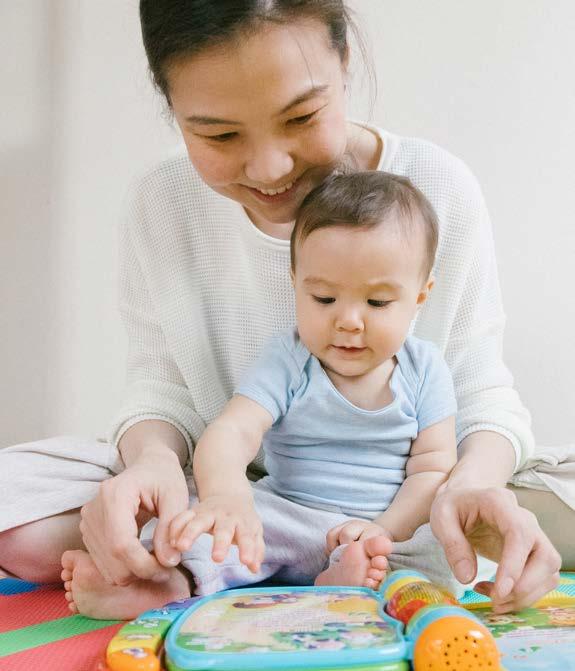

Health services
Peterborough has lots of health services for children and young people. These include GPs, Pharmacists, Dentists, Opticians and hospital services. These universal services are available to everyone. To find the nearest service
Health services for everyone
If you have concerns or questions about your child’s health, the first person you should contact is your GP, Health Visitor or School Nurse for medical services or your dentist for dental services. GPs can refer you or your child to more specialist services when needed or give advice regarding general health conditions. NHS dentist services are free to anyone under the age of 18.
Healthy Child Programme
The service consists of the Health Visiting Team (for children from birth to five years old), and the School Nursing Service Team (for children aged five to 19 years old).
Health Visiting Team
Health Visitors work closely with GPs, Nurses, Midwives and the wider community to provide support and advice to parents and families and can offer resources or signpost to other services available to them. When a child is born the hospital will notify the Health Visiting Team and the service
to you, visit the NHS website at www.nhs.uk and input your postcode for local information. Children with SEND may need more support. This could be from different health services at different stages in their lives.
To find an NHS dentist near you, visit www.nhs.uk/nhs-services/dentists/ how-to-find-an-nhs-dentist
NHS 111 can help if you or your child have an urgent medical problem and are not sure what to do. The service can advise on the next steps to take. Call 111 or visit https://111.nhs.uk (for people aged five years old or over).
will write to parents to arrange an initial visit. The Health Visiting Team can offer support with:
• Feeding, sleeping and toileting.
• Keeping parents and children safe.
• Immunisation advice, minor illnesses, child development worries or any other worries parents may have about their child’s wellbeing.
• Support for parents who might be feeling low in mood, anxious or who need help with bonding and building a relationship with their baby.
41 Visit www.myfamilyourneeds.co.uk for impartial information about SEND support
The service also offers routine development reviews around one year of age, and between two and two and a half years old; this is part of the Integrated Review process. See page 13 for more information.
School Nursing Service Team
The service consists of specialist nurses and each team covers a group of schools in a geographical area. School Nurses
Secondary health services
Children with SEND may need support from different health services at different stages in their lives. Some children and young people with SEND will have more complex needs and may need more specialist services, also called ‘secondary services’.
Speech and Language Therapy (SALT)
SALT provides speech and language therapy to infants, children and young people from birth to 19 years old who have speech, language and communication needs and feeding difficulties. Visit www.cpft.nhs.uk/ speech-and-language-therapy-children
Physiotherapy
The Children's Physiotherapy Service is a community-based service that works with infants, children and young people from birth to 19 years old who have general developmental delay, movement disorders and complex physical disabilities. The service’s aim is
promote healthy living and provide advice to parents or young people about any health concerns they may have.
Cambridgeshire and Peterborough Healthy Child Programme
Tel: 0300 029 5050
Text: 07520 649887
Web: www.
cambscommunityservices.nhs.uk
to focus on function and participation in everyday life, helping patients to reach their full potential and improve their quality of life. Visit www.cpft.nhs.uk/ physiotherapy-children
Occupational Therapy
The service works in the community and school with children from birth to 19 years old who have a range of mild to complex disabilities and difficulties. This includes developmental delay, motor disorders and/or complex physical disabilities. Visit www.cpft.nhs.uk/ occupational-therapy-children
Community Paediatrician Service
This service works as part of a multi-disciplinary team to provide support to children, young people and their families within Peterborough who have a range of developmental concerns and/or disabilities. All families requiring the service will require an Early Help Assessment (EHA) and professional
42 Visit www.peterborough.gov.uk/localoffer for local information about SEND
referral through either:
• Early Support Pathway for children from birth to five years old (see page 15 for more information).
• Targeted support for children over the age of five (see page 11 for more information).
Visit www.cpft.nhs.uk/communitypaediatrics
Psychology Children’s Service
This service is provided by a group of health professionals who assess a child’s abilities and identify how to best support their needs. This service supports children up to five years old. Visit www.cpft.nhs.uk/psychology-children

Specialist Nutrition and Dietetic Service
The service supports young people aged 16 years and over to improve their health by making the appropriate lifestyle and food choices. The team also provides assessment and treatment for those who need therapeutic diets and/ or nutritional support. Referrals can be made by GPs and other healthcare professionals. Visit www.cpft.nhs.uk/service-detail/ service/nutrition-dietetics-
Children’s Community Specialist Nursing Service
Specialist Nurses provide nursing to children and young people from birth up to their 18th birthday who:
• Need acute short-term interventions to enable them to be cared for at home.
• Have complex healthcare needs/ long-term conditions requiring nursing support/intervention.
• Require palliative and end of life care.
Visit www.cambscommunityservices. nhs.uk/children-s-communityspecialist-nursing-service-home
Social Care Occupational Therapy
The Social Care Occupational Therapy team can give you advice and information on moving and handling issues, seating at home, housing needs and provide assistive equipment and adaptations to overcome some of the difficulties. Search ‘Specialist health services’ on the SEND Information Hub: visit www.peterborough.gov.uk/localoffer
Specialist Dental Service
Some children and young people’s health needs mean that they struggle to access ordinary dental services. The Specialist Dental Service supports people who have a physical, sensory, intellectual, mental, medical, emotional or social impairment or disability which makes routine care in general dental practice unsuitable or impractical for their needs.
43 Visit www.myfamilyourneeds.co.uk for impartial information about SEND support
Patients are only accepted by the service via GP referral. To find out more, contact NHS England on 0300 311 2233. You can also call the NHS non-emergency number on 111
NHS Wheelchair Service
AJM Healthcare is the appointed
Palliative care
Palliative care is for people living with a terminal illness where a cure is no longer possible. It is also for people who have a complex illness and need their symptoms controlled. Palliative care aims to treat or manage pain and other physical symptoms. It will also help with any psychological, social or spiritual needs. Support may involve medicines, therapies, and any other support that specialist teams believe will help.
Palliative care also includes caring for people who are nearing the end of life. This is called end of life care. The goal is to help everyone affected by the diagnosis to achieve the best quality of life.
Palliative Care Hub
A free out of hours phone service is now available to patients, relatives, friends and all healthcare professionals providing specialist advice and support to those with life limiting illnesses in Cambridgeshire and Peterborough. Call 111 (select option three) to speak to a specialist Palliative Care Nurse who is available for advice, support and signposting to local services.
NHS Wheelchair Service Provider in Cambridgeshire and Peterborough.
Tel: 0808 169 9633
Email: cambridgeandpeterborough@ ajmhealthcare.org
Web: https://cambridgeshireand peterborough.wheelchair.services
East Anglia’s Children’s Hospices (EACH)
EACH supports families and cares for children and young people from birth to the age of 18 with life-threatening conditions across Peterborough, Cambridgeshire and surrounding counties.
Their family-centred approach includes specialist nursing care, symptom management support, short breaks, wellbeing activities, therapies and counselling. These all meet the individual needs of the child, young person and family. Families can self-refer or be referred by a health professional.
Tel: 01223 815100
Email: ipswichadmin@each.org.uk Web: www.each.org.uk
The following organisations provide care and support to adults from the age of 18. Both organisations offer a transition programme to young people aged 14 to 18 who are moving from children’s to adults’ hospice care services.
44 Visit www.peterborough.gov.uk/localoffer for local information about SEND
Sue Ryder Thorpe Hall Hospice
Longthorpe, Peterborough PE3 6LW
Tel: 01733 225900
Email: thorpehall@sueryder.org
Web: www.sueryder.org/how-we-canhelp/sue-ryder-thorpe-hall-hospice
Continuing care
Children with complex needs may need additional health support to that which is routinely available from GP practices, hospitals or in the community. Any child or young person up to their 18th birthday who has a complex health need may be eligible for continuing care. Any young person in receipt of continuing care will be assessed when they are aged 16-17 to
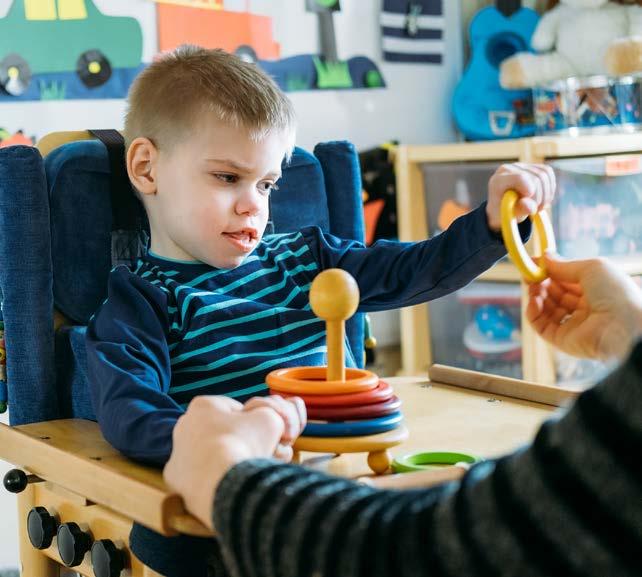
Arthur Rank Hospice
Cherry Hinton Road, Shelford
Bottom, Cambridge CB22 3FB
Tel: 01223 675777
Email: reception@arhc.org.uk
Web: www.arhc.org.uk
see if they are likely to be eligible for NHS Continuing Healthcare when they turn 18.
More information can be found in the ‘Good health' section of this guide on page 32 or by visiting the Peterborough SEND Information Hub. Visit www.peterborough.gov.uk/ localoffer (select ‘Health’).
45 Visit www.myfamilyourneeds.co.uk for impartial information about SEND support
Why choose us?

We are a leading law firm specialising in special educational needs. Our solicitors have considerable experience in tailoring advice to help families who have special educational needs get the best possible support from both schools and local authorites.
We help families request Education, Health and Care needs assessments, challenge refusals to assess, challenge refusals to issue an Education, Health and Care Plan (EHCP) and challenge the content of Plans. We can also help with Community Care, Deputyship, Wills and Trusts.
Education, Health and Care Plan (EHCP)
We can help build Plans ensuring the views, interests and aspirations of the child or young person is included as well as support for their education and training needs, health and social care needs, school placements & personal budgets.
Education, Health and Care (EHC) needs assessments
We have vast experience of putting together successful requests for an EHC needs assessment. If the assessment is refused, we can help build appeals to the Special Educational Needs and Disability Tribunal (SENDIST) and challenge the content of Plans.

Contact us for free inital advice senexpertsolicitors@boyesturner.com www.senexpertsolicitors.co.uk 0118 467 6547
We help children get the extra help and support they need, in the school they choose
Social care
Children and young people with disabilities should be able to access services available to all. Not all children and young people with additional needs will require a specialist service or intervention; however, some may be able to access specialist services through a social care assessment.
Requesting a social care assessment
You can request a Children's Social Care assessment by calling 01733 864180. This is the first point of contact for children’s social care. You will be asked some questions to help decide who is best placed to respond to your request. Please provide as much information as you can, including if your child has additional needs and/or a disability.
0-25 Disability Team
The 0-25 Disability Team supports children and young people with disabilities from birth to the age of 25 (and their families) who have an assessed social care need. The team is made up of Team Managers, Senior Practitioners, Social Workers, Care Team Support Workers and Business Support.
Threshold criteria for children and young people up to the age of 18
The team will carry out an assessment if:
• There is a presenting need which relates directly to the child’s disability.
Social care assessments are the process by which information about children, young people and their families and carers is gathered.
This is so that decisions can be made about what support and interventions they may need and be entitled to.
Adults over 18
If you are over 18 and are not already supported by the Disability Social Care Service, or any other Social Work Team, you can request an Adult Social Care assessment.
See page 49 for more information on support from Adult Social Care.
• There is a physical, learning and/or neuro-developmental disability or condition diagnosed by a doctor or consultant that is substantial, long lasting and permanent.
• The needs that result from their disability mean that the child requires total or substantial support, not appropriate to their age, from another person which is not available within their family or wider network.
• There are social care and safeguarding needs that cannot be met without specialist social care assessment.
47 Visit www.myfamilyourneeds.co.uk for impartial information about SEND support
The assessment process
When the team assesses the needs of disabled children and young people, it considers the needs of their parents and carers and other children in their immediate family. A member of staff from either the 0-25 Disability Team or Transition Team will get in touch with the child or young person to introduce themselves and the team, talk to them about the assessment process and make arrangements to meet them and their family.
The team will ask the child or young person’s permission to talk to other people who know them and their family’s circumstances. This would include parents (including those who may not live with the child or young person), other adults involved in looking after the child or young person, brothers and sisters, school or college, health professionals and other important people in the child/ young person’s life. For young people over 16 years they will need to give their permission if they have capacity to do so.
The team aims to complete assessments within a maximum of 45 working days. It will let you know when the assessment is starting, keep you informed throughout
the process and share the completed assessment with you. You will have the opportunity to share your views and for these to be recorded within the assessment before it is signed off.
Eligibility for support with assessed needs for children and young people up to 18
The team considers the needs identified in the assessment against the support already available to the child/young person and their family, before deciding whether there are any unmet social care needs which require additional support or services to meet those needs.
There is a range of support that could meet the assessed needs. The support that is offered, however, should address the needs identified in the assessment. It is also recognised that needs and circumstances change over time for disabled children and their families, and this will be considered in reviews.
There are three levels of needs which inform the level of services that can be accessed. You can find out more on the SEND Information Hub. Visit www.peterborough.gov.uk/localoffer (search ‘Disability social care 0-25’).
Disability Social Care Direct Payments
If a child or young adult with disabilities has had an assessment from the 0-25 Disability Team and is eligible for support, rather than being allocated
services from the council, you can choose your support or services. The services you choose will meet agreed outcomes, needs and your
48 Visit www.peterborough.gov.uk/localoffer for local information about SEND
circumstances through the allocation of a Personal Budget.
A Personal Budget is an amount of money that the council believes will meet the agreed social care outcomes and needs. It can be a Direct Payment or services or both. Direct Payments give you more flexibility and choice
Support from Adult Social Care
When you are over 18, social care support is organised by Adult Social Care. If you have been getting care and support from Children's Social Care, you may be eligible for support from Adult Social Care.
If you are over 18, have not been receiving support from Children's Social Care and you or your parent/carer feels that you may need some support as an adult, contact Adult Early Help.
Adult Early Help will have a conversation with you about what you think you might need support with. You can contact them
to arrange and purchase support or services in the way that best suits you.
You can view comprehensive details about children's Direct Payments on the SEND Information Hub. Visit www.peterborough.gov.uk/localoffer (search ‘Direct Payments’).
yourself or someone else can do it on your behalf. This could be your parent, a carer or a professional like a doctor. You can find out more on the SEND Information Hub. Visit www.peterborough.gov.uk/localoffer (search ‘Adult Social Care’).
Adult Early Help
Tel: 01733 747474
Email: adultsocialcare@ peterborough.gov.uk
Post: Peterborough City Council, Sand Martin House, Bittern Way, Fletton Quays, Peterborough PE2 8TY
Are you concerned about a child’s safety?
Safeguarding children is everyone’s responsibility. The Cambridgeshire and Peterborough Safeguarding Children Partnership Board has lots of useful information.
Visit https://safeguardingcambs peterborough.org.uk/children-board
If you think that a child or young person is being abused or neglected in Peterborough, call 01733 864180.
Outside office hours, at weekends and on public holidays contact the Emergency Duty Team on 01733 234724.
49 Visit www.myfamilyourneeds.co.uk for impartial information about SEND support


Contact us to find out how we can help you At Caring Together we believe no unpaid carer should be in crisis, isolated, or struggling alone. The right support and information can make a huge difference. Our support for you includes: • Information and advice • Learning skills to help you in your caring role • Help with planning for the future • Groups where you can meet other parent carers 0345 241 0954 hello@caringtogether.org caringtogether.org We can help you Looking after someone?
Supporting carers
Parent Carers
As parents and carers, we tend to focus on meeting the needs of our children, young people and family members. However, there is support available for Parent Carers too.

Caring Together provides support to carers of all ages across Cambridgeshire, Peterborough and Norfolk. It provides information and advice, runs services in the local
Young Carers
Young Carers are children and young people under 18, whose lives are affected by caring for a member of their family. They may care for a relative who has a physical or learning disability, a long-term illness, a terminal condition, mental ill health or difficulties with drug or alcohol use.

Most Young Carers look after one of their parents or care for a brother or sister. They do extra jobs in and around the home, such as cooking, cleaning or helping someone to get dressed and move about. Young Carers may feel good about the help that they give and be proud of the skills they have; however, caring may also impact on their attendance at school, gaining qualifications, taking part in hobbies and extracurricular activities or their own mental health and emotional wellbeing.
community and campaigns so that carers have choices.
Tel: 0345 241 0954
Email: hello@caringtogether.org
Web: www.caringtogether.org
There is lots more useful information on the SEND Information Hub. Visit www.peterborough/gov.uk/localoffer (search ‘Parent Carers’).
Centre 33 is a local organisation that has been commissioned to provide a range of support to help children and young people up to the age of 18 who are caring for a family member. Centre 33 also runs weekly drop-ins for any Young Carer who is looking for support, advice or someone to talk to. Opening times are Mondays and Wednesdays, 2 00pm to 5 00pm.
Tel: 0333 414 1809
Text: 07514 783745
Email: help@centre33.org.uk
Web: https://centre33.org.uk/help/ peterborough
51 Visit www.myfamilyourneeds.co.uk for impartial information about SEND support
Money, benefits and financial support

There are benefits and tax credits that you may be entitled to. Some benefits can be paid because your child is disabled while others may be paid to you
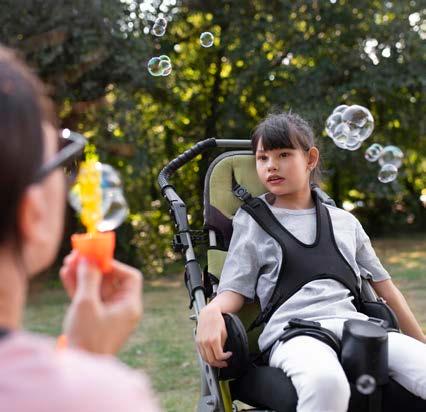
DLA for children
DLA for children may help with the extra costs of looking after a child who:
• Is under 16.
• Has difficulties walking or needs much more looking after than a child of the same age who does not have a disability.
Your child will need to meet all eligibility requirements set by the Government. Visit www.gov.uk/disability-livingallowance-children
for other reasons. For example, you may be getting Disability Living Allowance (DLA) for your child and Carer's Allowance as their carer.
Personal Independence Payments (PIP)
You can get PIP if all of the following apply to you:
• You are 16 or over.
• You have a long-term physical or mental health condition or disability.
• You have difficulty doing certain everyday tasks or getting around.
• You expect the difficulties to last for at least 12 months from when they started.
PIP is a new benefit with its own criteria and assessment process.
If your child has been receiving DLA, they will not automatically be transferred to receiving PIP. You can find out more by visiting www.gov.uk/pip
52 Visit www.peterborough.gov.uk/localoffer for local information about SEND
Universal Credit (UC)
Depending on your income and certain other factors, you may also be able to claim UC, which supports you if you are on a low income or out of work.
Disabled Students Allowance (DSA)
If you are a higher education student living in England, you can apply for DSA if you have a disability, including a:
• Long-term health condition.
• Mental health condition.
• Specific learning difficulty.
The support you get depends on your individual needs and not on income. Find out more by visiting www.gov.uk (search ‘DSA’).
It includes a monthly payment to help with your living costs. You can find out more on the Contact website at www.contact.org.uk (search ‘benefits’).
Disability Peterborough can help with checking what benefits you can claim, help to fill in forms and answer questions. For more information, please refer to the following contact details.
Tel: 01733 265551
Email: info@disabilitypeterborough.org
Web: www.disabilitypeterborough.org
• Birth to adulthood
• Real life blogs
• Directory
• Ask the experts
• Monthly columnist
www.myfamilyourneeds.co.uk
The lifestyle site for parents and carers of children with additional needs and those who support them.
Get involved Ask questions Join the family Subscribe today hello@myfamilyourneeds.co.uk • @WeAreMFON 53 Visit www.myfamilyourneeds.co.uk for impartial information about SEND support
Support with the cost of living
For people who are eligible to receive the benefits outlined in the previous section of this guide, there
is additional support available in Peterborough to help with the rising cost of living.
Energy advice service for disabled people
Scope now offers an energy advice service for disabled people across England and Wales. Its Disability Energy Support service provides free energy advice to any household where a disabled person lives across England and Wales. Scope’s expert energy advisers can offer support with:
• Energy debt.
• Switching tariffs or supplier.
• Changing your meter.
• Green energy.
• Becoming more energy efficient.
• Accessing energy benefits, grants and trusts.
• Contacting or complaining to your supplier.
Free school meals
If you are in receipt of certain benefits your child may be entitled to free school meals, saving you up to £450 per year per child. This scheme is available for school-age children and to post-16 students at a school with a sixth form or college. Cambridgeshire County Council manages this process on behalf of Peterborough City Council. Find out more at
• Understanding your bills.
• Understanding how to use your heating systems.
• Free pre-payment fuel vouchers (conditions apply).
You can book an appointment on Scope’s webpage below. Appointments are available Monday to Friday, 8 00am to 8 00pm (excluding bank holidays).
Freephone: 0808 801 0828 (Monday to Friday, 11.00am to 4.00pm, excluding bank holidays).
Email: disability.energysupport@ scope.org.uk
Web: www.scope.org.uk/disabilityenergy-support
www.cambridgeshire.gov.uk search ‘free school meals’).
Additionally, eligible families in Peterborough will be able to receive supermarket vouchers during school holidays. Vouchers will be sent automatically to families eligible for income-based support using school data and information held by the city council.
54 Visit www.peterborough.gov.uk/localoffer for SEND support in Peterborough Visit www.peterborough.gov.uk/localoffer for local information about SEND
Holiday Activities and Food (HAF) programme
The programme offers fully funded holiday places to children and young people who are in receipt of benefit-related free school meals. HAF runs during school holidays – Easter (four sessions), Summer (16 sessions) and Christmas (four sessions).

The programme is funded by the Department for Education (DfE) and aims to encourage children and young people to be active and eat healthily during school holidays, take part in engaging activities and local opportunities. For more information on the HAF programme or to book a place, visit www.peterborough.gov.uk (search ‘HAF’) or email haf@peterborough.gov.uk
JollyDays provide unforgettable supported holidays for adults with mild to moderate learning disabilities.


We offer the quality and experience that you deserve within a supportive and safe environment.
Fun and enjoyment is the key to every successful supported holiday.
CONTACT US
01277 355 565
enquiries@jollydaysholidays.co.uk
www.jollydaysholidays.co.uk

The 3H Foundation has been supporting those with disabilities and carers to have holidays and short respite breaks for nearly 50 years.
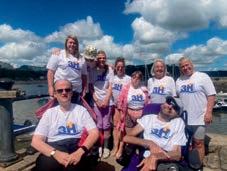
We provide:


Independent group holidays for those with disabilities with all care needs catered for.



UK holiday grants for low-income families with a disabled family member.


Respite breaks for adult carers including afternoon teas, respite hampers, carer UK holiday grants or spa days.
Home-based activity challenges for young people with disabilities and young carers aged 13 – 25.
Activity hampers for young carers.
Funding to provide days out or activities for young people.

01892 860207
www.the3hfoundation.org.uk
info@the3hfoundation.org.uk
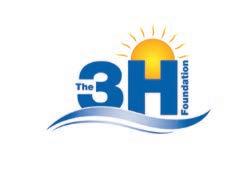
55 Visit www.myfamilyourneeds.co.uk for impartial information about SEND support
Grants available for families raising a disabled or seriously ill child



National charity Family Fund gives wide-ranging grants to families raising a disabled or seriously ill child on a low income.
Apply to us today if you’re the parent or carer of a disabled child up to the age of 24. Whether you need a kitchen appliance, like a fridge, cooker or washing machine; clothing and bedding; sensory or play equipment; technology for your child, or a much-needed family break, we are here to help.

“The grants we’ve had from Family Fund are like a big hug, a safety net for anything we’ve ever needed. It’s been a lifeline.”
- Sue, a mum carer
Apply today!
Family Fund Trust . Private company limited by guarantee. Incorporated in England and Wales. Registration no. 3166627. Registered charity no. 1053866. Scottish charity no. SC040810. Registered office: Unit 4, Alpha Court, Monks Cross Drive, Huntington, York YO32 9WN.
www.familyfund.org.uk
The Family Fund
The DfE has provided a further £10 million to the Family Fund which is a UK-wide charity that provides grants for essential items to families on low incomes raising disabled or seriously ill children.

Families can apply for grants for a wide variety of items that they feel could help their disabled child and ease some of the everyday pressures they face. These can include kitchen appliances, computers and tablets, furniture, family breaks and day trips, sensory toys, clothing and bedding and more. Family Fund cannot consider requests where a statutory agency has assessed a need and has a responsibility to provide the item.
Mobility
If your child has medium- or long-term mobility issues, you may need extra help with the costs getting to and from appointments. If you are using mobility-related services, you may get help towards additional costs and be eligible for welfare benefits, including grants such as the Family
Support with debt
Turn2Us is a national charity providing information and support to help you get back on track. Visit www.turn2us.org.uk
Families who have previously received a grant from Family Fund can re-apply for further funding after 15 months. If your circumstances change you may be able to reapply sooner, so it is worth checking on the Family Fund website at www.familyfund.org.uk/grants/applyfor-a-grant
Grants and financial support for children with life-limiting conditions
The East Anglian Children’s Hospice (EACH) has information about grants and financial support for children with life-limiting conditions. Find out more on its website at www.each.org.uk (search ‘Grants’).
Fund, Motability Scheme or Blue Badge scheme.
You can find out more about the Motability Scheme by visiting www. motability.co.uk and about Blue Badges by visiting www.peterborough.gov.uk (search ‘Blue Badges’).
Citizen’s Advice offers advice and practical support too. Find out more at www.citapeterborough.org.uk
57 Visit www.myfamilyourneeds.co.uk for impartial information about SEND support
We are a local registered charity who are actively seeking to improve services in all areas of the lives of children and young people with disabilities or additional needs. We are here for Parents and Carers of children and young people aged 0—25 years with a disability or additional needs.





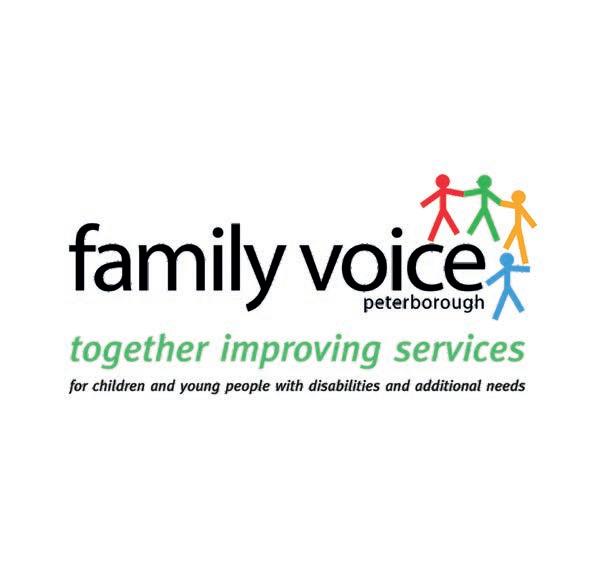


We aim to work together with professionals and parents so that the services for our children and young people meet their needs. Putting parent carers and their children at the centre and helping them to be heard.


Visit us www.familyvoice.org Find us Goldhay Community Centre 105 Paynels Orton Goldhay Peterborough PE2 5QP Tag us Facebook: @fvpcommunity Twitter: @familyvoice1 Instagram: @family.voice Email us o ce@familyvoice.org Call us 01733 685510 Information, Advice & Support, from Family Voice Peterborough. CONTACT US! Need our help?
WE CAN HELP YOU! Registered Charity No. 1171389 (CIO)
the opportunity to
First
Families First appreciate all the support Family Voice have provided. We are grateful for
deliver weekly free Open Access Play sessions to families and children in the heart of the Orton Community Families
Parent Carer participation
Parent Carer participation allows parents and professionals working together to improve services for children and young people with SEND. Parent Carer participation focuses on both the individual and collective voice. Individual Parent Carers, children and young people have their say within their own services and Parent Carer forums represent the
Opportunities for participation

The SEND Information Hub has a dedicated page where you can find all participation opportunities available for Parent Carers in Peterborough, including:
• Family Voice – Parent Carer coffee mornings, evening and weekend community hubs, training programmes, activities and events.
• Peterborough City Council and Family Voice – Parent Carer listening meetings every half term.
• SEND Newsletter – A new edition is published quarterly and contains information on SEND services in Peterborough to support Parent Carers.
• Scope’s Youth Community Collective and Engagement Programme.
• Caring Together – Parent Carer workshops, hubs and resources.
• The Seldom Heard project – launched in recognition of the need to get
collective voice of Parent Carers.
Family Voice offers Parent Carer participation opportunities in Peterborough to help ensure your voice is heard. See page 7 for more information on Family Voice and how you can get involved. Or visit the SEND Information Hub at www.peterborough. gov.uk/localoffer (search ‘Family Voice’).
better at seeking the views of children and adults with learning disabilities and more complex communication challenges.
• Voiceability supports people with a learning disability and /or autism to have their say and improve services to best meet their needs.
Visit the SEND Information Hub at www.peterborough.gov.uk/localoffer (search ‘Parent Carer participation’) for more information.
59 Visit www.myfamilyourneeds.co.uk for impartial information about SEND support
Compliments and complaints
If you want to make a compliment or complaint, first contact the organisation or service directly. They are best placed to resolve any issues.
Have you tried this, or don’t feel it is an option? You can make a complaint through the official complaints procedures. More information on how to do this can be found as follows, depending on the service you need to complain about.
Compliments and complaints about schools

If you would like to make a compliment or complaint about a school, please contact the school to discuss it first. Follow all the steps in the school’s complaints procedure to make a formal complaint. Every school in England must have one. It is often on the school’s
website and should tell you the kind of complaints the school deals with. The Government website has more information on the complaints procedure for schools in England at www.gov.uk/complain-about-school
Compliments and complaints about health services
To make a compliment or complaint about a health service, visit Healthwatch Peterborough at www.healthwatchpeterborough.co.uk/ help-making-complaint/ Healthwatch can tell you how to complain about a health service provided through various local health providers.
The Patient Advice and Liaison Service (PALS) at each NHS Trust offers confidential advice, support and information on health-related matters. PALS provides a point of contact for patients, their families and their carers. For more information, visit the NHS website at www.nhs.uk (search ‘What is PALS?’).
Compliments and complaints about Children's Social Care
To make a compliment or complaint about the service you have received, visit Peterborough City Council’s website at www.peterborough.gov.uk (search ‘Children’s Social Care complaint’) or email childrenssocialcarecomplaints@ peterborough.gov.uk
60 Visit www.peterborough.gov.uk/localoffer for local information about SEND
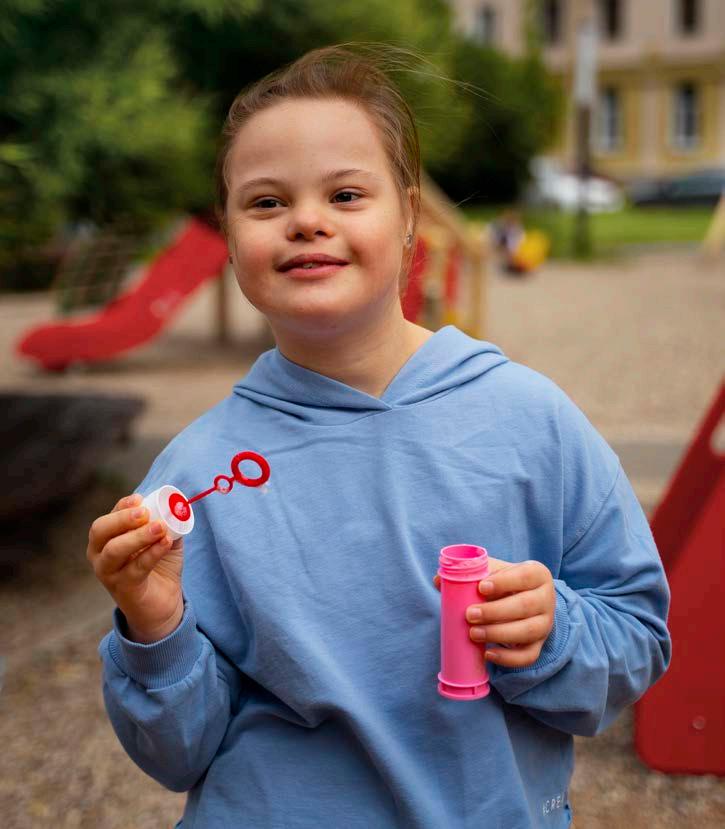

Compliments and complaints about Adult Social Care
You should start by talking to the member of staff you are in direct contact with. If that is not possible, or if you are still not happy, you should ask to speak to that person’s manager or the Customer Service Team. Most problems can be sorted out quickly through discussion.
If you are still not satisfied, you can contact the council's Complaints Team by emailing ASCcomplaints@ peterborough.gov.uk
Central Complaints Office
You can use this service to make a complaint about council services using the following contact details.
You should normally make a complaint within 12 months of the date of the event that you are complaining about, or as soon as you first knew about the problem.

Tel: 01733 296331
Web: www.peterborough.gov.uk/ council/make-a-complaint (online complaints form).
Post to: The Central Complaints Office, Sand Martin House, Bittern Way, Fletton Quays, Peterborough PE2 8TY
More information on making a complaint or providing feedback can be found on the SEND Information Hub. Visit www.peterborough.gov.uk/localoffer (search ‘Compliments and complaints’).
www.myfamilyourneeds.co.uk
62 Visit www.peterborough.gov.uk/localoffer for local information about SEND
The lifestyle site for parents and carers of children with additional needs and those who support them. • Birth to adulthood • Real life blogs • Directory • Ask the experts • Monthly columnist Get involved Ask questions Join the family hello@myfamilyourneeds.co.uk • @WeAreMFON
Useful contacts
Barnardo’s Children and Families Centres
See page 14 for more information.
Email: peterboroughadminteam@ barnardos.org.uk
Web: https://bookwhen.com/barnardosc-fcp-borough-cambridgeshire
Caring Together
See page 51 for more information.
Tel: 0345 241 0954
Email: hello@caringtogether.org
Web: www.caringtogether.org
Centre 33
See page 51 for more information.
Tel: 0333 414 1809
Email: hello@centre33.org.uk
Web: https://centre33.org.uk/help/ peterborough
Circles Network
A voluntary organisation focused on building inclusive communities. It provides services such as advocacy, training courses on inclusion and community support. A referral is needed to access this service.
Tel: 01733 234828
Email: info.east@circlesnetwork.org.uk
Web: www.circlesnetwork.org.uk
Disability Peterborough
Provides information and advice on all things related to physical disabilities. The service also offers practical support, such as Handy Person Service,
Wellbeing Service, Shopmobility and Disability Awareness Training.
Tel: 01733 265551
Email: info@disabilitypeterborough.org
Web: www.disabilitypeterborough.org
Family Voice
See page 7 for more information.
Tel: 01733 685510
Email: office@familyvoice.org
Web: www.familyvoice.org
Healthwatch
Ensures your feedback on NHS services is heard. The service also provides information and advice on health services.
Tel: 0330 355 1285 (Monday to Thursday, 9 00am to 4 00pm; and Friday, 9.00am to 3.30pm).
Text: 07520 635176
Email: enquiries@ healthwatchcambspboro.co.uk
Web:
www.healthwatchpeterborough.co.uk
Little Miracles
Supports families of children with additional needs, disabilities and/or life-limiting conditions from birth to 25 years old. This includes support before a diagnosis.
Tel: 01733 262226
Email: childcare@littlemiraclescharity.org.uk
Web: www.littlemiraclescharity.org.uk
63 Visit www.myfamilyourneeds.co.uk for impartial information about SEND support
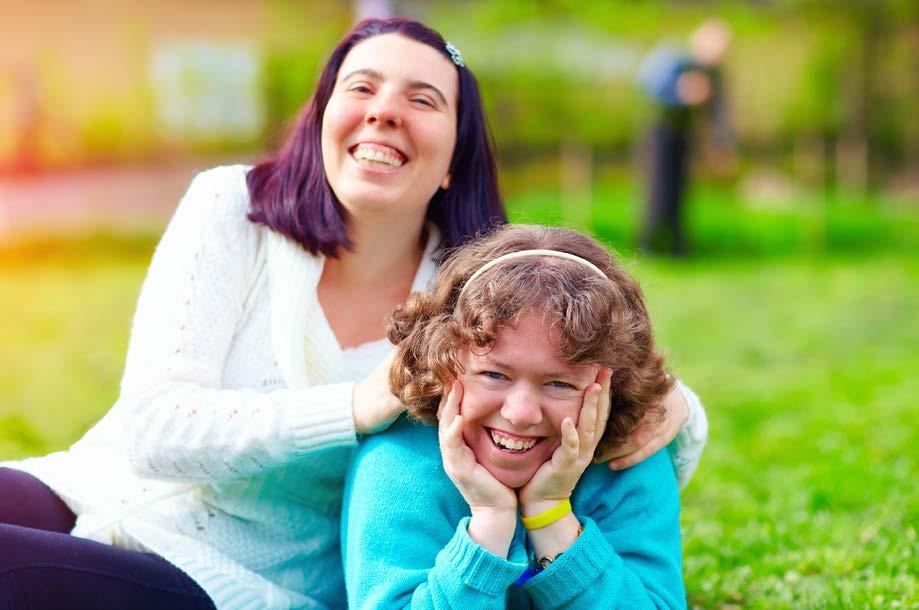

Peterborough City Council
Tel: 01733 747474
Email: ask@peterborough.gov.uk
Web: www.peterborough.gov.uk
Sense
A national charity that supports people who are deafblind, have sensory impairments or complex needs, to enjoy more independent lives. Sense also offers support from Multi-Sensory Impairment Specialists for children and young people up to 25 years old.
Tel: 0300 330 9272
Email: info@sense.org.uk
Web: www.sense.org.uk
Scope
Provides practical information and emotional support when it’s most needed. Its free disability helpline is available seven days a week.
Tel: 0808 800 3333
Other directories
H.A.Y (How Are You) Peterborough
Web: https://haypeterborough.co.uk
Learn Together Cambridgeshire and Peterborough
Web: www.cambslearntogether.co.uk
The following websites offer more information about schools in neighbouring local authorities, and Local Offers nearby.
Cambridgeshire County Council Web: www.cambridgeshire.gov.uk/SEND
Email: helpline@scope.org.uk
Web: www.scope.org.uk
Scope – Sleep Right
Support parents and carers dealing with bedtime difficulties. Contact the service directly for more information on how to get a referral.
Tel: 07966 004704
Email: sleep.right@scope.org.uk
Targeted Support Service (Early Help)
See page 11 for more information.
Tel: 01733 863649
Email: targetedsupport@peterborough.gov.uk
Vivacity Inclusive Leisure
Offers a year-round programme of inclusive sport and leisure activities to young people and adults with disabilities. Web: https://vivacity.org/things-to-do/ inclusive-leisure
Lincolnshire County Council Web: www.lincolnshire.gov.uk/sendlocal-offer
North and West Northamptonshire Councils
Web: www.northamptonshire.gov.uk/ councilservices/children-familieseducation/SEND/local-offer
Leicestershire County Council
Web: www.leicestershire.gov.uk/ education-and-children/specialeducational-needs-and-disability
65 Visit www.myfamilyourneeds.co.uk for impartial information about SEND support
Has this guide helped you?
As this is the first issue of the Peterborough Guide for Parent Carers of Children and Young People with Special Educational Needs and Disabilities
following QR code.

My Family, Our Needs is part of Care Choices Limited. Care Choices Limited has taken every care to ensure that the information contained in this guide is accurate at the time of print. The company cannot accept responsibility for any errors or omissions in the publication, including if an organisation varies from the information included in an advertisement or the editorial. Care Choices Limited does not endorse or support any particular organisation included in the guide. ©2023 Care Choices Limited. Care Choices Limited reserves all rights in the titles Care Choices and HOMES Directories and their design.
Care Choices™ is a trademark of Care Choices Limited.

Ref. No: 4001/PeterboroughCityCYP1/0823. Reproduction of any part of this publication in any form without the written permission of Care Choices Limited is prohibited.
Published by: Care Choices Limited, Valley Court, Lower Road, Croydon, Nr Royston, Hertfordshire SG8 0HF. Tel: 01223 207770.
Director of Policy and Communications: Jo Dovey.
Director of Sales: David Werthmann.
Sales Manager: Paul O’Callaghan.
Regional Sales Supervisor: Vanessa Ryder.
Senior Sales Executives: Tony Boyce, Hannah O’Neill, Susan Speaight.
Director of Creative Operations: Lisa Werthmann.
Studio Manager: Jamie Harvey.
Lead Designer: Ruth Keating.
Graphic Designers: Rebecca Mendil, Tyler Smith.
Lead Editor: Henry Thornton.
Editors: Olivia Hubbard.
Content Editor: Aislinn Thompson.
Distribution: Gemma Seaber-Shinn.
Information Hub Manager: Jackie Cozens

Information and Access Co-ordinator: Diana Mooney
Peterborough Information Network (PIN) Officer: Roger Valentine
Chief Executive Officer: Louise Ravenscroft Forum Co-ordinator: Asta Remezaite
66 Visit www.peterborough.gov.uk/localoffer for local information about SEND
(SEND) from birth to 25 years, we would like to get your views on how you have found it. You can complete an online survey by scanning the
How to view this guide in a different language online
1. Visit www.myfamilyourneeds.co.uk/publications and click ‘View the Peterborough Guide’ at the bottom of your screen.
2. Click on the icon to reveal the Recite Me toolbar. Then, click ‘Download PDF’ in the pink box.
3. Click on the icon at the top of your screen.
4. Search for or select your preferred language. Languages including the icon means that the text can be read aloud.

5. Use your cursor to highlight any text you wish to be read aloud. Then, click the icon and listen. Recite Me offers a range of other accessibility tools. For more information, visit www.myfamilyourneeds.co.uk/website-accessibility

Visit www.myfamilyourneeds.co.uk for impartial information about SEND support 67 www.myfamilyourneeds.co.uk The lifestyle site for parents and carers of children with additional needs and those who support them. • Birth to adulthood • Real life blogs • Directory • Ask the experts • Monthly columnist Get involved Ask questions Join the family Subscribe today hello@myfamilyourneeds.co.uk • @WeAreMFON







Download the SEND Information Hub Easy Read Guide





























































































